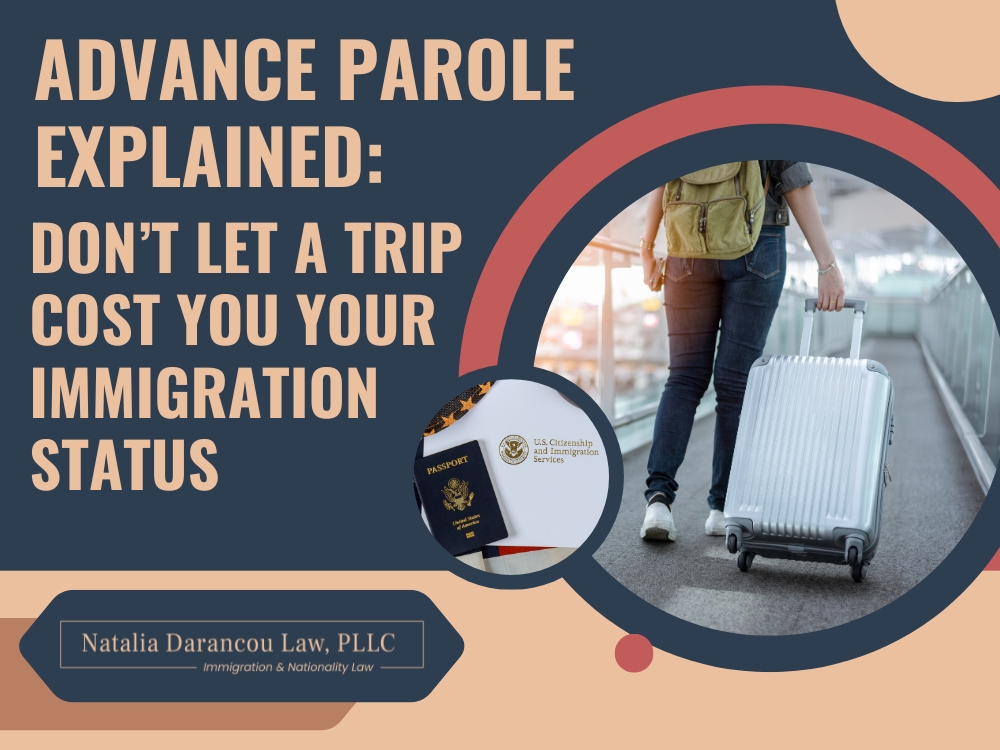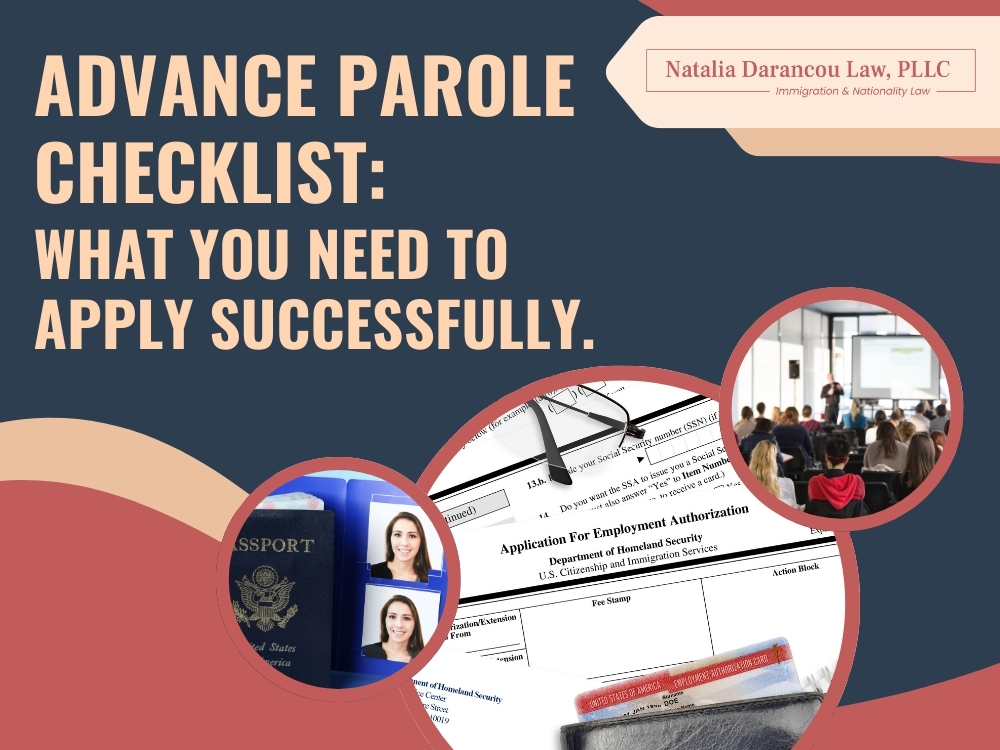

Advance parole ensures applicants can leave the United States temporarily without risking their immigration status. Whether you’re a green card applicant or need to attend to urgent matters abroad, this guide will help you learn about advance parole, the processing time, and how an immigration lawyer can assist you.

Request Help Today

We have a 4.9 Star Rating with over 30 reviews on Google!

We are a woman-owned company and proudly committed.

Natalia Darancou was born and raised in El Paso, Texas to Mexican-American parents and is a native Spanish speaker.

Member of the New York State Bar, Texas State Bar, and a member of the American Immigration Lawyers Association (AILA).
Advance parole is a travel document issued by U.S. Citizenship and Immigration Services (USCIS).
It allows applicants to travel internationally for emergencies, work, or visit loved ones without jeopardizing their status.
Traveling outside the U.S. without advance parole can make USCIS consider your application abandoned, which may result in denial.

You can request emergency advance parole for urgent situations, such as:
To request emergency advance parole, you must provide evidence of the urgency (e.g., medical records, death certificates). While approval is not guaranteed, USCIS typically reviews these requests on a case-by-case basis and may expedite them depending on the circumstances.
Advance parole is a valuable resource for several categories of immigrants. Commonly, the following groups are eligible to apply:
If you’re unsure whether you qualify, it’s best to consult an immigration attorney who can evaluate your individual circumstances.

File and submit Form I-131, the Application for Travel Document, with supporting documents. USCIS will provide a receipt notice to notify you when they receive your application.
If USCIS approves your application, they’ll issue your advance parole document. It is typically valid for a year, but the validity may vary depending on individual circumstances. Be sure to carry this document when traveling and present it to U.S. Customs and Border Protection officers upon re-entry into the United States.
For those who file Form I-131 alongside an employment authorization application (Form I-765), USCIS prioritizes employment authorization processing first.
The processing time for advance parole typically falls between 90 and 120 days. However, this timeline may be extended due to factors such as the complexity of the application, workload at the USCIS service center, or the overall case volume. To avoid potential delays, it’s advisable to apply well in advance.
For those with urgent travel needs, expedited processing may be requested for emergency advance parole, provided the supporting documents justify the urgency.
Receiving a denial can be discouraging, but it’s not the end of the world. If USCIS denies your application, you can:
Given the challenges a denial can bring, working with an immigration attorney ensures your application is complete, accurate, and well-supported.
Advance parole ensures eligible individuals can travel abroad without jeopardizing their pending applications. However, the process involves detailed requirements, inherent risks, and meticulous preparation, so you’ll need an experienced immigration lawyer.
If you’re applying for advance parole or have faced challenges with your application, contact Natalia Darancou Law, PLLC for legal assistance. Book a consultation, and our team will provide the legal support you need for your immigration journey.
